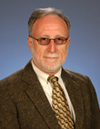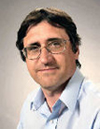Academy of Distinguished Teaching Scholars (ADTS) - 2007 Inductees
Academy of Distinguished Teaching Scholars: 2007 Inductees
The Provost announces the 2007 inductees into the University of Florida's Academy of Distinguished Teaching Scholars
These outstanding educators have demonstrated sustained innovation and commitment to teaching throughout their careers. They also have articulated their vision for promoting excellence across campus to the faculty committee that reviewed nominees to the Academy. To assist them in advancing their vision for excellence and faculty enhancement at the University, this year's Academy teacher-scholar awardees will serve for three years on the advisory board for Faculty Development.
In this capacity they will assist the Associate Provost in developing programs and workshops that enhance the professional careers and experiences of faculty. As teaching and learning advocates, Academy members also promote a university-wide discourse on key issues surrounding the development of teaching at the University.
After completing their three-year terms on the advisory board, members will retain the title of Distinguished Teaching Scholar and continue to be a part of the Academy
 |
Gregory J. Neimeyer
Professor, Department of Psychology
Doctor of Philosophy in Psychology
University of Notre Dame, 1982
Teaching Philosophy Excerpt: Since coming to the University of florida in 1981, I have developed an approach to teaching and research that recognizes the central role that both contexts play in the generation, as well as the dissemination, of knowledge. Prominent features of my current teaching style, which include interaction demonstration, and the exploration of the boundaries of our knowledge, are only the visible out croppings of earlier efforts that did not always fare so well.
Academy Pedagogical Pointer: Of course teaching, like research, represents an ongoing developmental process. For that reason I have dedicated myself to instructional innovation, teaching via the Web, developing and conducting a range of different overseas students courses (in Central America, Italy, and Sweden), and teaching a half a dozen different courses at graduate and undergraduate levels over the last five years. In addition, I strongly believe that the development of a scholarly discipline profits from the proactive cultivation and recruitment of diverse intellectual talent, and that the classroom represents a major vehicle for recruitment of that talent. For that reason I am a longstanding supporter of our university's mechanisms for recruiting, retaining, and developing diverse students. I teach a [course in] Research Methods through the Office of Graduate Minority Programs, for example, where my goal is to foster a culture of inclusion in the classroom that will help infuse our disciplines with a breadth of diverse talent in the ranks of tomorrow's teachers and scholars.
|
 |
Nigel Richards
Professor, Department of Chemistry
Doctor of Philosophy in Chemistry
Cambridge University, 1983
Teaching Philosophy Excerpt: [M]eaningful education requires faculty to spend time with undergraduate students and establish a strong personal interaction. Even with the demands of pursuing high-level scholarly research and obtaining external funding in a time of decreasing resources, it is critical to make time to talk with students if I am to understand and respond to their difficulties as they seek to assimilate the key concepts required to pursue advanced scientific studies. Hence, in addition to lectures, I teach 3-4 optional small group discussions ("office hours") per week, at which all attendees must discuss and solve problems at the board. I therefore become familiar with the strengths and weaknesses of individual students, permitting me to "tailor" the discussion so as to meet their needs at a personal level.
Academy Pedagogical Pointer: My . . . goal is to demonstrate that science is an evolving intellectual framework. The high-school background of many students prevents any recognition that science is best understood as a complete conceptual system rather than as disconnected compartments having no intellectual relationship. I encourage students to recognize that science is a human endeavor (often influenced by cultural and personal prejudices) rather than the dry, mechanical and uninteresting process that is often misinterpreted as being the "scientific method."
|




